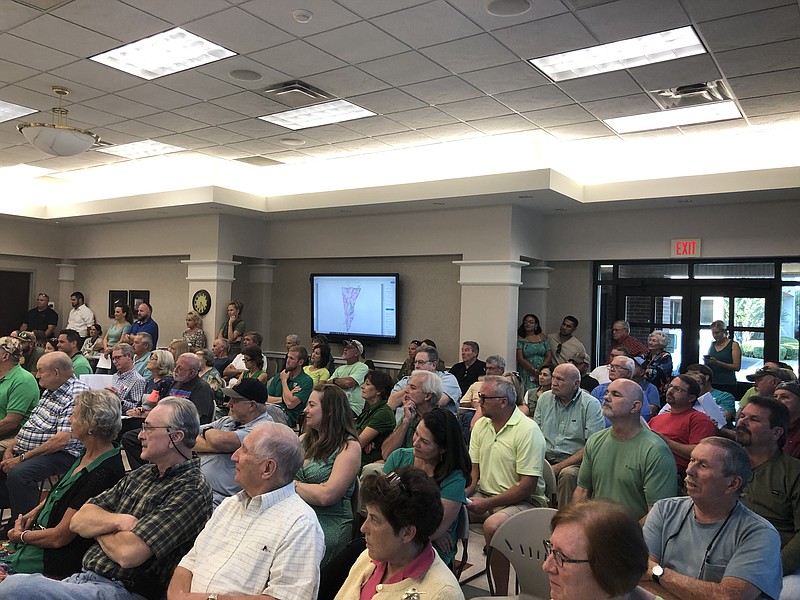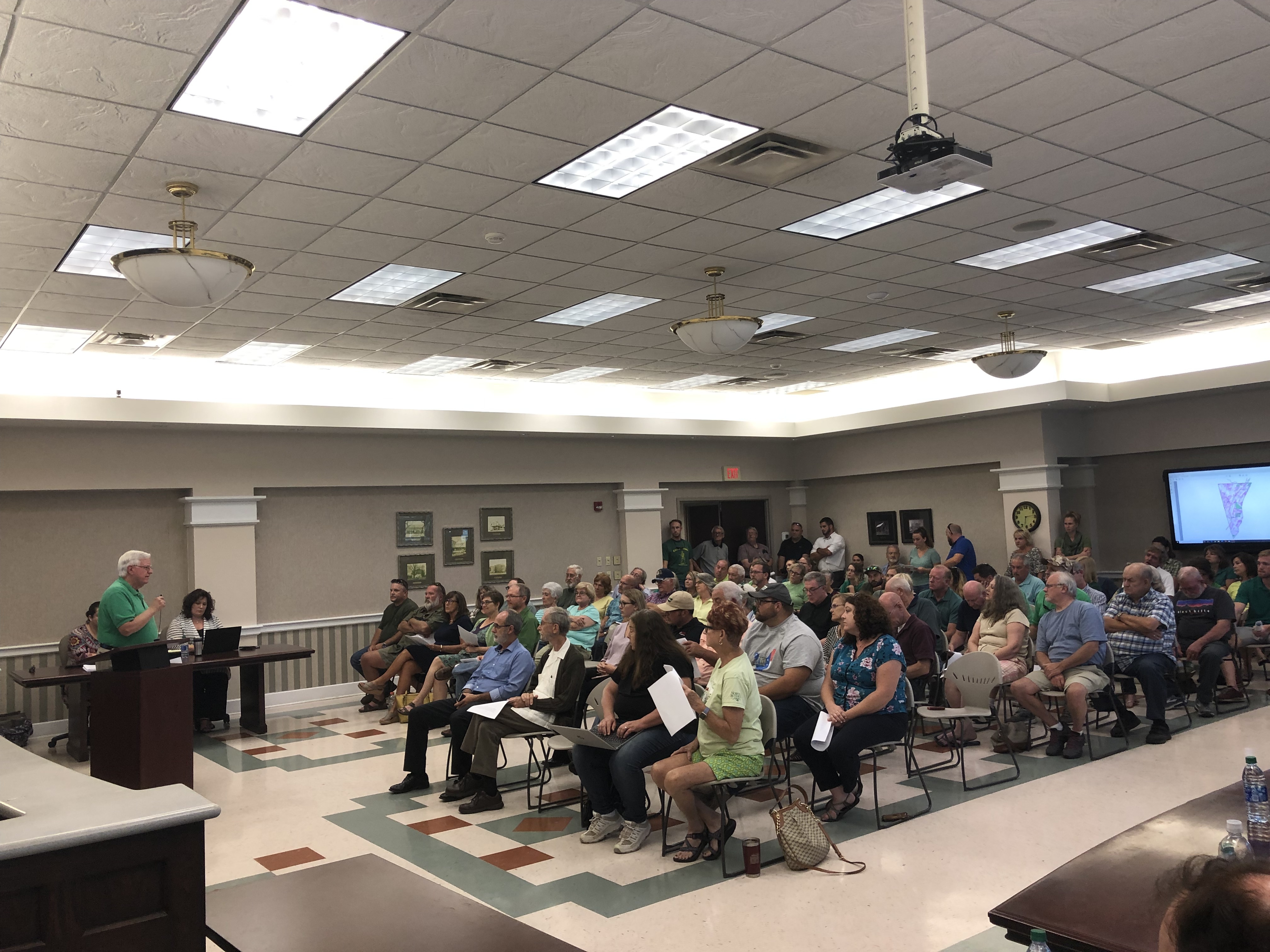The Dade County Commission has drafted a new ordinance that would require a special-use permit for industrial development amid news of a possible chicken processing plant relocating to Northwest Georgia.
At a public hearing Monday night, it was standing-room only as dozens of Dade County residents packed the meeting and spoke in support of putting some rules on the books that would protect their clean drinking water, property values and overall quality of life.
Although several people said the first draft ordinance needed some revising, all but one person who spoke were in favor of implementing a special-use permit for industrial development.
CJ Giordano, who has lived in Dade County for eight years, said it's critical to maintain the area as a recreational gem and to keep that the focus of economic development.
"It's our choice whether we stimulate the economy with industry that will preserve its natural beauty while keeping Dade County working for the residents," Giordano said. "I'm not saying we should ban any kind of industry in the valley, but without an ordinance like this people have no influence or control in what goes on."
Russell Campbell said he is in favor of small businesses - especially ones that are local - but he is not in favor of "large-scale pollution."
Suzanna Alexander moved to Dade County 30 years ago. She told commissioners that implementing the ordinance is not an "either/or" situation and that Dade County could benefit from both growth and preservation even with slight zoning changes.
"We can have beautiful environments and places where growth does occur and we can come up with ideas on how they can be different than Chattanooga," Alexander said. "We can say we are a special county and we can set a model for Georgia and the nation about how we care about our communities."
The draft ordinance would require applicants who want to develop a number of industrial sites, businesses, plants, warehouses and other facilities to obtain a special-use permit.
In the draft, the commission wrote that while industry could have positive benefits economically for the county, development has the "potential to have substantial negative impacts to the community, public road and utility infrastructure, environment, property values and use of enjoyment of nearby properties."
The ordinance has a list of 14 different industrial uses that would require the permit. Those include mining, manufacturing, meat processing, truck terminals, scrap metal storage and dozens of others.
The ordinance also reads that the rules wouldn't be applied to industrial uses that are fully contained on a single parcel of land less than five acres.
Some at Monday's meeting thought the first draft of the ordinance needed to be narrowed down. Some also expressed concern about the five-acre rule.
David Young, former Dade County commissioner and land surveyor, noticed that as written, the ordinance would force someone who wanted to make soap in their home to pay the $500 application fee and go through the same procedures as a chicken processing plant would.
The commission reiterated several times Monday that the ordinance was a draft in process and likely would go through many iterations before it would become law.
How we got here
In August, the commission placed a moratorium on permit applications for development after residents were told that real estate developer John Wise was considering helping facilitate the move of Pilgrim's Pride from downtown Chattanooga to a 300-acre farm he purchased earlier this year in Dade County.
Wise told the Times Free Press he had no plans right now to develop anything on the property, adding that he wants to keep it as a "gentleman's farm" and provide quail hunts.
However, with speculation brewing in the community, the commission felt the need to act, seeing as Dade County is only one of a handful of 159 counties in Georgia that has no zoning ordinances at all.
The Dade County Commission, with a push from the public, passed the resolution that put a moratorium on permit applications, but not without some insight from Wise.
Commissioner Lamar Lowery said some of the commissioners met with Wise before the resolution was passed and discussed how to create regulations for industries in unincorporated parts of the county.
Lowery also said Wise assured the commissioners that "for right now, he had no plans to build a chicken processing plant" in Dade County, but he didn't go as far as saying he wouldn't build the plant.
What happens now
Several residents in Dade County have spoken out against zoning ordinances, saying it infringes on their property rights and would put restrictions on what they can or cannot do on their own land.
However, finding that middle ground has been the key to the commission and community's next steps.
Katie Bien is a Wildwood resident and the founder of the Wildwood Preservation Alliance.
Nearly half of the people in attendance Monday wore green in solidarity with the Alliance, which was started to help prevent big industry - especially animal slaughterhouses - from moving into Wildwood, saying they would pollute air quality, poison nearby creeks and destroy the quality of life for residents.
Most of the people at Monday's meeting agreed something needed to be put on the books, but when asked if the first draft was the answer, nearly everyone said they wanted it changed.
The moratorium for industrial development is in effect until February. From now until then, the commission has to work through getting a definitive ordinance on the books that will put residents at ease while also not restricting their property rights.
Contact Patrick Filbin at pfilbin@timesfreepress.com or 423-757-6476. Follow him on Twitter @PatrickFilbin.

